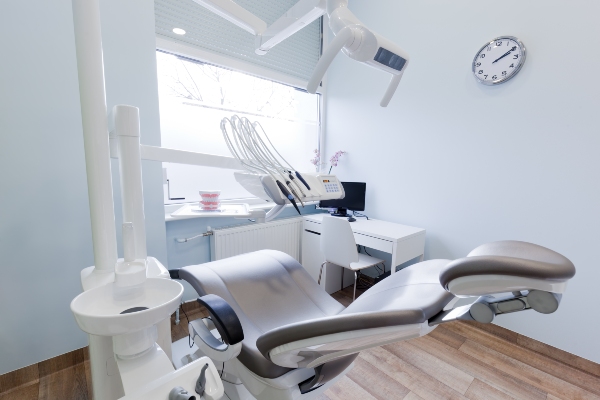The Dangers of Untreated Cavities

Also known as tooth decay, a cavity refers to a hole in your tooth. One of the common causes of cavities is having food particles stuck in between the teeth, which is why it is so important to floss every day. Two of the more common symptoms that come with having a cavity include tooth sensitivity and tooth pain. Know that while a cavity may start out small, if a dentist does not treat it as soon as possible, it will continue to get bigger. If you think you have a cavity in one or more of your teeth, the sooner you seek treatment, the better.
Can anyone get cavities?
Yes, it is possible for anyone to be diagnosed with a cavity in one or more of their teeth, even infants. According to the Mayo Clinic, tooth decay and cavities are two of the more common health problems in the world. Even when someone brushes and flosses their teeth twice a day as recommended, it is still possible that they can get a cavity. This is why it is so essential for everyone to see a dentist on a regular basis, as a dentist will know whether or not a cavity is present even if the patient does not.
Options for treating cavities
When a dentist treats a cavity, choosing the ideal treatment option will depend on the overall condition of the tooth. While the majority of dental patients will get a filling to repair the cavity in the tooth, other repair options include crowns and getting a root canal. If the tooth is too damaged by the cavity, then it will need to be extracted.
The dangers of untreated cavities
If a cavity is left untreated, it is highly likely that the dental patient will have ongoing tooth pain, which is going to get in the way of their being able to perform everyday tasks, like chewing food. Other dangers that come with not treating a cavity include being at a higher risk for chipping the jeopardized tooth, developing pus pockets around the tooth and being diagnosed with a tooth abscess, which can potentially be life-threatening if it enters the bloodstream.
Think you might have cavities?
If you think you might have cavities, then we invite you to contact us now to make an appointment so you can know for sure. Everyone has bacteria in their mouth, which love to stick to your teeth. When these bacteria are not removed as soon as possible, they will begin to turn any sugars in the mouth into acids. These acids will slowly eat away at your tooth enamel, which means that your mouth is not as healthy as it should be. When your teeth are not protected, it can not only negatively affect your oral health, but your overall general health, as well. Talk to one of our dental health professionals today.
Are you looking for info on cavities in the Kennewick area? Get more cavities information at https://www.gledhilldental.com
Check out what others are saying about our services on Yelp: Read our Yelp reviews.
Related Posts
Dental crowns stand out among dental restorations as versatile and effective solutions for various oral health issues. A dental crown, or "cap," is designed to cover and encase a damaged or weakened tooth, restoring its strength, function, and appearance.Over the years, advancements in dental technology have led to the development of various types of dental…
Your dentist can help determine if you need dental crowns. There are many reasons for getting these restorations. The main goal is always to restore the tooth and enhance its functions. Here are the signs you may need dental crowns soon.Losing at least one tooth can cause more dental problems. It can lead to dental…
The term "root canal" often causes anxiety in patients. This fear is largely due to misconceptions surrounding this dental procedure. However, a root canal is an effective treatment that can relieve pain, save a natural tooth, and prevent further complications. By understanding the most common myths about root canals, patients can approach this treatment with…
Dental crowns are a popular option for restoring a smile, but they offer more benefits than you may know. A dental crown is a customized, tooth-shaped cap placed over a damaged or compromised tooth to help its shape, size, appearance, and strength. Discover common signs indicating a dental crown is right for you.A dental crown…


